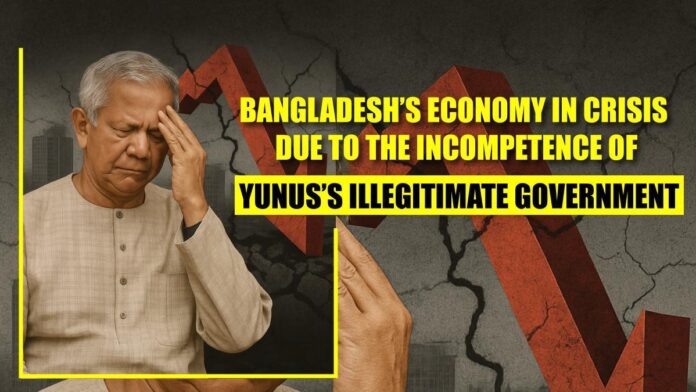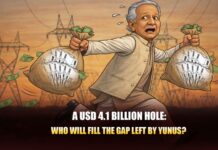Investment Collapse, Soaring Inflation, and Industrial Stagnation Push GDP Growth to a 20-Year Low — Projected to Fall to Just 3.3% This Fiscal Year
Bangladesh is facing a severe economic crisis driven by political uncertainty, rising import costs of capital goods, a foreign currency shortage, and a slowdown in private investment—according to the World Bank’s latest Global Economic Prospects report, released last Tuesday. The forecast warns that Bangladesh’s GDP growth could decline to just 3.3% in FY 2024-25, the lowest in two decades (excluding the COVID-19 period).
With industrial output disrupted and inflation on the rise, lower- and middle-income families are struggling to afford essentials like food, healthcare, education, and housing. Economists warn that in such conditions, it’s the general public that suffers most—many risk losing employment and falling below the poverty line as incomes shrink.
The World Bank stresses that restoring political stability and implementing business-friendly reforms are the only ways to revive investment.
Experts further caution that if instability and uncertainty persist, not just growth but poverty, unemployment, and social inequality could reach dangerous levels.
Read more:
🔗 World Bank: Bangladesh’s GDP growth to fall to 20-year low due to political unrest





